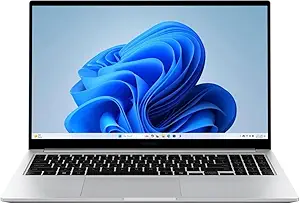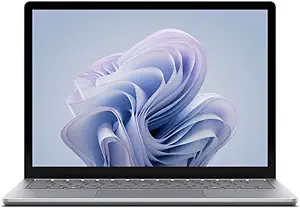- 1. MacBook Pro 2023
- 2. Apple MacBook Air M3
- 3. HP Dragonfly G4 Notebook PC
- 4. Samsung Galaxy Book 2
- 5. Dell XPS 13
- 6. Asus Vivobook Go
- 7. Lenovo IdeaPad Flex 5
- 8. Microsoft Surface Laptop
- 9. Lenovo ThinkPad X1 Carbon
- Performance Testing:
- Audio and Video Quality:
- Battery Life:
- Security Features:
- Ergonomics and Build Quality
- Portability and Connectivity:
- Real-World Use:
- Performance:
- Security:
- Portability:
- Display:
- Audio and Webcam Quality:
- Ergonomics:
- Connectivity:
- Durability:
- Budget:
- What Makes the Lenovo ThinkPad X1 Carbon Suitable for Therapists?
- How Does the Lenovo ThinkPad X1 Carbon Handle Data Security?
- Is the Lenovo ThinkPad X1 Carbon Portable Enough for Therapists Who Travel or Work Remotely?
- Can the Lenovo ThinkPad X1 Carbon’s Keyboard and Display Affect Therapy Sessions?
- What Should Therapists Consider When Choosing a Laptop for Telehealth?
- Are there Specific Features in Laptops like the Lenovo ThinkPad X1 Carbon that Support Extensive Typing?
- What Connectivity Options are Important in a Laptop for Therapists?
- Why is Battery Life Important for Telehealth Laptops?
As telehealth continues to transform the landscape of therapy practices in America, choosing the right laptop has become crucial for therapists and psychologists. In 2023, an impressive 89% of U.S. psychologists were conducting therapy sessions online, emphasizing the need for reliable, high-performance computing tools.
With this shift towards digital health, therapists require laptops that not only manage standard tasks but also excel in streaming high-definition video for seamless virtual appointments.
For those looking to optimize their telehealth setup in 2025, the Samsung Galaxy Book 2 emerges as the top choice, specifically designed to enhance online therapy experiences. It excels with superior audio quality, high-resolution camera capabilities, and long battery life—essential features for maintaining professional and effective client engagements.
Additionally, therapists who frequently take notes during sessions might find 2-in-1 laptops particularly beneficial. Devices like the Microsoft Surface or Lenovo Yoga offer the versatility of converting into a tablet, making them ideal for those who value flexibility and functionality. These laptops provide the perfect balance of performance and portability, ensuring therapists can adapt to various working environments while providing top-notch care.
By focusing on these critical features, therapists can ensure they select a laptop that not only meets their professional needs but also enhances the overall efficiency and effectiveness of their telehealth practices.
Our experts have shortlisted these Most Popular Laptop for Telehealth and Best Laptop for Mental Health Therapists
1. MacBook Pro 2023

PROS
- Touch Bar: Enhances productivity with intuitive shortcuts.
- Large Storage: Offers up to 1TB storage.
- Long Battery Life: Up to 20 hours.
- Superior Audio/Video: Excellent for telehealth.
CONS
- High Price: Expensive initial investment.
- Non-upgradable: Fixed RAM and storage.
- Heavier Design: Less portable than ultralights.
- Apple Ecosystem: Best within Apple’s own system.
The 2023 MacBook Pro is a standout choice for telehealth professionals, integrating state-of-the-art technology to ensure smooth and effective virtual consultations. Featuring the innovative Touch Bar, a substantial 1TB of maximum storage, and 8GB of RAM, it’s designed to handle a variety of tasks effortlessly. Notably, it offers up to 20 hours of battery life, making it ideal for long days without constant recharging.
The MacBook Pro is also renowned for its superior audio quality and pristine camera resolution, a recent upgrade in Apple’s 2024 edition enhances these features even further, improving client interactions through clearer communication and video quality.
Despite its higher price point, the MacBook Pro’s durability and longevity offer significant long-term savings, reducing the frequency of costly replacements. This laptop remains a top choice for therapists who require a reliable, high-performance machine for their telehealth needs.
2. Apple MacBook Air M3

PROS
- Advanced Chip Technology: Features the latest M3 chip for superior performance.
- High-Quality Display: Liquid Retina display offers exceptional visual clarity.
- Sustainable Design: Uses 50% recycled content, supporting environmental sustainability.
- Security Features: Includes Touch ID for secure and quick access to data.
CONS
- Price: Premium cost may not fit all budgets.
- Limited Port Variety: May require additional adapters for more connectivity options.
- Fixed Configuration: Limited ability to upgrade hardware post-purchase.
- Apple Ecosystem Restrictions: Best used within the Apple software environment.
The Apple MacBook Air M3 is optimized for therapists, especially those using platforms like Mentalyc, and is a preferred choice for Apple enthusiasts. With its new M3 chip employing advanced 3-nanometer technology, this laptop significantly enhances performance, making it ideal for managing multiple therapy applications simultaneously.
It offers an 8-core CPU that can be upgraded to a 10-core GPU, and up to 24GB of unified memory, ensuring smooth and efficient handling of demanding tasks.
The MacBook Air M3 also excels in display quality with its 13-inch and 15-inch Liquid Retina displays, providing outstanding clarity and color vibrancy, crucial for therapists who often view detailed multimedia content. Moreover, its ability to support two external displays greatly enhances multitasking capabilities during virtual sessions.
This MacBook Air M3 model combines cutting-edge technology with environmental consciousness, making it a powerful, secure, and user-friendly option for modern therapists committed to the Apple ecosystem.
3. HP Dragonfly G4 Notebook PC

PROS
- Powerful Performance: Handles complex tasks with ease
- Enhanced Security: Features like TPM and HP Sure Sense provide top-tier protection.
- Superior Audio/Video: High-quality webcam and audio features improve telehealth sessions.
- Reliable Connectivity: Wi-Fi 6 support ensures stability in dense wireless environments.
CONS
- Price: High-end specifications come at a premium cost.
- Weight: Slightly heavier than some competitors, affecting portability.
- Complex Features: Some features may require a learning curve for less tech-savvy users.
- Battery Life: Intensive use may reduce battery performance quicker than expected.
The HP Dragonfly G4 Notebook PC is a top choice for telehealth professionals who need a blend of high-performance technology and robust security features. Equipped with a 13th generation Intel Core i7 processor and 32 GB of LPDDR5 RAM, this laptop offers the efficiency required to manage complex patient data and multitask during consultations.
The 1 TB SSD ensures that there is more than enough space for all necessary applications and extensive medical records.
Security is a priority in the telehealth sector, and the HP Dragonfly G4 excels here with its Trusted Platform Module (TPM), which provides hardware-based encryption to protect sensitive data.
Additionally, HP Sure Sense employs deep learning AI to protect against evolving malware threats, safeguarding patient information and telehealth sessions from unauthorized access.
The HP Dragonfly G4 also stands out for its superior audio-visual capabilities, crucial for telehealth. It includes a 5MP webcam equipped with advanced features such as multi-camera support and HP Keystone Correction, enabling healthcare providers to offer clear and professional virtual consultations.
The webcam’s facial tracking technology ensures the speaker remains the focal point during interactions, crucial for effective communication and maintaining patient engagement.
Overall, the HP Dragonfly G4 Notebook PC is an excellent laptop for telehealth providers, offering the necessary performance, security, and multimedia capabilities to conduct effective and secure consultations.
4. Samsung Galaxy Book 2

PROS
- Vibrant Display: Super AMOLED screen ideal for multimedia.
- Strong Performance: Capable of handling multitasking with ease.
- Enhanced Audio/Video: Ensures clear communication.
- Long Battery Life: Up to 16 hours, supporting day-long use.
CONS
- Price: May be higher compared to similar models.
- Weight: Slightly heavier than some ultra-portables.
- S Pen Sold Separately: Additional cost for full functionality.
- Limited Upgradeability: What you buy is largely what you get.
The Samsung Galaxy Book 2 is tailored for therapists who require a portable yet powerful computing solution. It features a 15.6-inch Super AMOLED display, renowned for its vibrant colors and deep contrasts, enhancing video conferencing and detailed multimedia presentations. The full HD webcam and dual AKG-tuned stereo speakers deliver clear and effective communication for online therapy sessions.
Equipped with Intel’s 12th-generation processors, the Galaxy Book 2 excels in multitasking and smoothly runs professional software, essential for busy therapists. The responsive keyboard, complete with a numpad, and a large trackpad that supports S Pen inputs, make it ideal for extensive typing and note-taking during sessions.
Connectivity is robust, offering USB-A, two USB-C ports (one with Thunderbolt 4), a microSD card slot, and HDMI output, providing therapists with the flexibility to connect various peripherals. Its lightweight design and up to 16 hours of battery life under mixed usage ensure it can handle a full day’s work, making it a practical choice for both office and remote settings.
This blend of performance, portability, and practical connectivity makes the Samsung Galaxy Book 2 a standout choice for therapists looking for a reliable laptop to support their professional activities.
5. Dell XPS 13

PROS
- InfinityEdge Display: Offers expansive, clear visuals in a compact form.
- Portability: Lightweight and easy to transport, with strong battery life.
- Comfortable Input Devices: Features a comfortable keyboard and precise trackpad, ideal for extensive typing.
- Configurable: Various options available to tailor specifications to specific needs.
CONS
- Price: It is relatively expensive, which may not fit all budgets.
- Limited Ports: Fewer connectivity options may require additional investments in adapters or docking stations.
- Thermal Performance: Can run warm under heavy loads, affecting comfort and performance.
The Dell XPS 13 stands out as a top choice for therapists who require a blend of sleek design, robust performance, and exceptional portability. This model is renowned for its InfinityEdge display, which provides stunning visuals, making it particularly beneficial for video consultations and detailed reviews of client information.
It is also an excellent choice for therapists who need a reliable laptop for therapy note-taking and other professional tasks. Its compact size and extended battery life are crucial for professionals who frequently transition between various work environments or endure long sessions without access to power.
Overall, the Dell XPS 13 combines aesthetic appeal with functional prowess, making it an excellent investment for therapists looking for a dependable laptop that supports a dynamic professional lifestyle.
6. Asus Vivobook Go

PROS
- Affordable
- Good display
- Lightweight
- Reliable connectivity
CONS
- Limited power
- Basic features
- Variable battery
- Modest build quality
The Asus Vivobook Go strikes an excellent balance for therapists looking for an affordable yet capable laptop. It is powered by an AMD Ryzen 5 7520U processor with 16 GB of RAM and a 512 GB SSD, ensuring smooth handling of everyday tasks such as managing clinical notes and browsing the internet. The 15.6-inch Full HD OLED display provides vivid colors and clear visuals, which is beneficial for reviewing documents and multimedia content.
The laptop’s lightweight design, weighing only 1.63 kg, and its battery life of up to 10 hours make it highly portable, suitable for therapists who need a device that can last through a busy day without frequent recharges. It also includes essential connectivity options like USB-C and HDMI ports, along with Wi-Fi 6E for fast and reliable internet access.
The Asus Vivobook Go is an excellent choice for therapists who require a dependable, portable, and cost-effective laptop for professional use, offering a practical solution without the high expense of more premium models.
7. Lenovo IdeaPad Flex 5

PROS
- Versatile 2-in-1 design
- Strong performance
- Enhanced security features
- Long battery life
CONS
- Pen sold separately
- Heavier than some tablets in tablet mode
- Standard design without premium finishes
- Limited advanced connectivity options
The Lenovo IdeaPad Flex 5 stands out as a highly versatile 2-in-1 laptop, perfect for therapists who need a flexible and reliable tool for their practice. It sports a 14-inch Full HD IPS touchscreen with a 360-degree hinge, allowing use in various modes—laptop, tablet, or stand—ideal for note-taking and sharing educational materials with clients.
Equipped with 11th Generation Intel Core processors, the IdeaPad Flex 5 handles multitasking and therapy-related software with ease, while its long battery life ensures it lasts through a full day of appointments.
Security is paramount in therapeutic settings, and this laptop addresses that need with a physical webcam privacy shutter and a fingerprint reader, enhancing privacy and data protection. Therapists who prefer handwriting notes can also utilize an optional digital pen, available separately, adding to its versatility.s
The IdeaPad Flex 5’s combination of performance, flexibility, and security features makes it an excellent choice for healthcare professionals seeking a practical device that adapts to various needs and settings.
8. Microsoft Surface Laptop

PROS
- High-Contrast Display: The PixelSense Flow touchscreen provides a responsive and vivid visual experience, adaptable to various lighting conditions.
- Comfortable Keyboard: Designed for extensive typing sessions, making it ideal for therapists.
- Integrated Microsoft Ecosystem: Seamless compatibility with Microsoft software enhances productivity and security.
- Robust Security Features: Includes Windows Hello for quick and secure facial recognition logins.
CONS
- Premium Price: Higher cost due to advanced features and design.
- Limited Ports: May require additional accessories like docks for more connectivity.
- Heavier Software Load: Pre-installed software can consume system resources.
- Design Uniformity: Few changes in design across versions, which might not appeal to all users.
The Microsoft Surface Laptop, particularly the latest models like the Surface Laptop 5 and Surface Laptop 7th Edition, combines elegance, functionality, and advanced technology, making it an appealing option for professionals such as therapists. These models are celebrated for their sleek design, lightweight portability, and robust performance, enhanced by environmentally conscious materials that reduce their ecological footprint.
This Surface Laptop is particularly well-suited for therapists looking for a device that not only looks good but also offers strong performance, essential security features, and excellent integration with Microsoft’s ecosystem. These attributes ensure a productive and secure environment, vital for managing sensitive client data and maintaining confidentiality in therapy practices.
9. Lenovo ThinkPad X1 Carbon

PROS
- Powerful Processing: Features vPro technology for enhanced multitasking capabilities.
- Durability: Meets military specifications for ruggedness, ensuring it can withstand tough conditions.
- Enhanced Security: Includes Tile® tracking technology to protect against loss or theft.
- Ergonomic Keyboard: Redesigned for a comfortable and efficient typing experience.
CONS
- Premium Price: High cost due to advanced features.
- Heavier Design: More robust build might add to the weight.
- Complex Features: Some security features may require technical familiarity to use effectively.
- Limited Color Options: Typically available in standard business colors, lacking variety.
The Lenovo ThinkPad X1 Carbon is designed to meet the rigorous demands of therapists and other professionals who require a robust, secure, and high-performance laptop.
The Gen 10 model is equipped with up to 12th Gen Intel Core vPro processors, providing the necessary power to handle multitasking and intensive workloads efficiently. This is particularly beneficial for therapists who need to manage multiple client files and applications simultaneously.
The Lenovo ThinkPad X1 Carbon blends performance, security, and durability in a sleek, portable package, making it a prime choice for therapists who need a dependable laptop that can cope with the demanding nature of their profession. Its long battery life and ultralight design further enhance its suitability for professionals who frequently transition between work locations or need to work remotely.
Top Laptops for Therapists—Conclusion
When choosing the best laptop for therapists, especially those involved in telehealth, it’s crucial to consider factors like performance, security, and portability. Among the options discussed, the Lenovo ThinkPad X1 Carbon stands out as the best choice.
It offers a robust combination of durability, high-performance processing, advanced security features, and lightweight design, making it highly suitable for the demanding tasks of modern therapy practices. This makes the Lenovo ThinkPad X1 Carbon the top recommendation for therapists seeking a reliable and secure laptop to support their professional needs
How we test laptops for telehealth or therapists:
To ensure that laptops are well-suited for telehealth or therapy practices, we employ a rigorous testing process that evaluates each device across multiple crucial dimensions. Here’s an overview of how we test laptops for these specific professional needs:
Performance Testing:
- Processor and Memory: We assess the laptop’s ability to handle multiple applications simultaneously, crucial for therapists who may need to access client records, video conferencing tools, and other software during sessions.
- Software Compatibility: We verify compatibility with popular telehealth platforms like Zoom, Microsoft Teams, and specialized therapy management software to ensure smooth operation.
Audio and Video Quality:
- Webcam Test: We evaluate the webcam’s resolution, color accuracy, and low-light performance to ensure that the therapist appears clear and professional during video calls.
- Microphone and Speakers: We test the audio input and output for clarity and noise cancellation, critical for communicating effectively with clients without external disturbances.
Battery Life:
- Endurance Testing: We simulate a typical workday for a therapist to see how long the laptop can operate on a single charge, including video calls, document editing, and web browsing.
Security Features:
- Data Protection: We check for security features like biometric authentication (fingerprint reader, facial recognition), TPM chips, and encryption options to protect sensitive client information.
- Software Security: We also look at the pre-installed security software and the ability to update or add more comprehensive security solutions.
Ergonomics and Build Quality
- Keyboard and Touchpad: We evaluate the comfort and responsiveness of the keyboard and touchpad during extended use, as therapists often spend considerable time typing or navigating through files.
- Physical Build: We examine the laptop’s durability, checking if it can withstand the rigors of daily use in various environments.
Portability and Connectivity:
- Weight and Size: Since therapists may need to move between different settings, we assess the laptop’s portability.
- Connectivity Options: We test the variety and reliability of connection ports for peripherals that might be needed during sessions, such as external monitors or specialized medical equipment.
Real-World Use:
- Therapist Feedback: Where possible, we incorporate feedback from actual therapists who use these laptops in their practice, providing insights into how the device performs in real-world conditions.
Top Laptops for Therapists—Buyers guide
When selecting a laptop for therapy practices, especially for telehealth, consider the following key aspects to ensure you get the most suitable device for your needs:
Performance:
Choose a laptop with a powerful processor capable of multitasking and handling the software commonly used in therapy sessions. Intel Core i5 or i7, or their AMD equivalents, are typically sufficient for most therapy applications.
Security:
Security is paramount, particularly when handling sensitive client information. Look for laptops with built-in security features like fingerprint readers, TPM (Trusted Platform Module), and comprehensive encryption options to protect data.
Portability:
Since therapists may need to carry their laptops to various locations, a lightweight and compact design is crucial. A battery life of at least 8 hours is preferable to accommodate a full day’s work without needing a recharge.
Display:
A high-quality display is essential for conducting video sessions and reviewing detailed documents. A minimum of Full HD resolution is recommended. Touchscreen capabilities might be beneficial for those who like to interact more directly with the device.
Audio and Webcam Quality:
For telehealth, excellent audio and a high-definition webcam are crucial for clear communication. Look for laptops with noise-cancelling microphones and webcams that support at least 720p resolution.
Ergonomics:
Since therapists often spend extended periods on their laptops, a comfortable keyboard and responsive touchpad are important. Consider ergonomic designs that support prolonged use without discomfort.
Connectivity:
Ensure the laptop has adequate ports for peripherals such as external monitors, USB devices, and possibly an Ethernet connection for stable internet access. Wi-Fi 6 capability offers improved wireless connectivity.
Durability:
If the laptop will be used in various environments, consider its build quality and durability. Models that comply with military durability standards (like MIL-STD 810G) are designed to withstand more rigorous use.
Budget:
Determine your budget and find a laptop that fits within it while meeting your professional requirements. Investing in a higher-end model might be more cost-effective over time due to better durability and fewer needs for replacements.
Top Laptops for Therapists—FAQs
What Makes the Lenovo ThinkPad X1 Carbon Suitable for Therapists?
- The Lenovo ThinkPad X1 Carbon is ideal for therapists due to its robust processing power, which can handle multiple applications simultaneously—essential for managing client files. Its durable design and advanced security features also protect sensitive data effectively.
How Does the Lenovo ThinkPad X1 Carbon Handle Data Security?
- It includes advanced security features such as Tile® tracking technology to prevent loss or theft, biometric authentication like fingerprint readers, and encryption protocols to ensure that client information remains confidential and secure.
Is the Lenovo ThinkPad X1 Carbon Portable Enough for Therapists Who Travel or Work Remotely?
- Yes, the ThinkPad X1 Carbon is known for its ultralight design and long battery life, making it highly portable and ideal for therapists who need to transition between different work locations or conduct sessions remotely.
Can the Lenovo ThinkPad X1 Carbon’s Keyboard and Display Affect Therapy Sessions?
- Absolutely. The laptop’s ergonomic keyboard allows for comfortable, extended typing sessions for note-taking during therapy sessions. Additionally, its high-resolution display ensures clear visibility for video consultations and reading extensive client notes.
What Should Therapists Consider When Choosing a Laptop for Telehealth?
- Therapists should look for laptops with reliable performance, long battery life, excellent audio and video capabilities for clear communications, and robust security features to protect client data. Portability and ergonomic design also play significant roles for comfort and flexibility in various therapy environments.
Are there Specific Features in Laptops like the Lenovo ThinkPad X1 Carbon that Support Extensive Typing?
- Yes, the ThinkPad X1 Carbon features a specially designed keyboard that is well-regarded for its comfort and responsiveness, which is crucial for therapists who spend a significant amount of time writing clinical notes or reports.
What Connectivity Options are Important in a Laptop for Therapists?
- Therapists should ensure the laptop has multiple USB ports, HDMI, and possibly Thunderbolt connections for attaching peripheral devices like external monitors or specialized medical equipment. Wireless connectivity features such as Wi-Fi 6 and possibly 5G or LTE support are also important for uninterrupted telehealth sessions.
Why is Battery Life Important for Telehealth Laptops?
Long battery life ensures you can conduct multiple sessions without needing to recharge, providing reliability and convenience.
Note: Mylaptopguru is reader-supported. When you buy through links on our site, we may earn an affiliate commission. Read here

